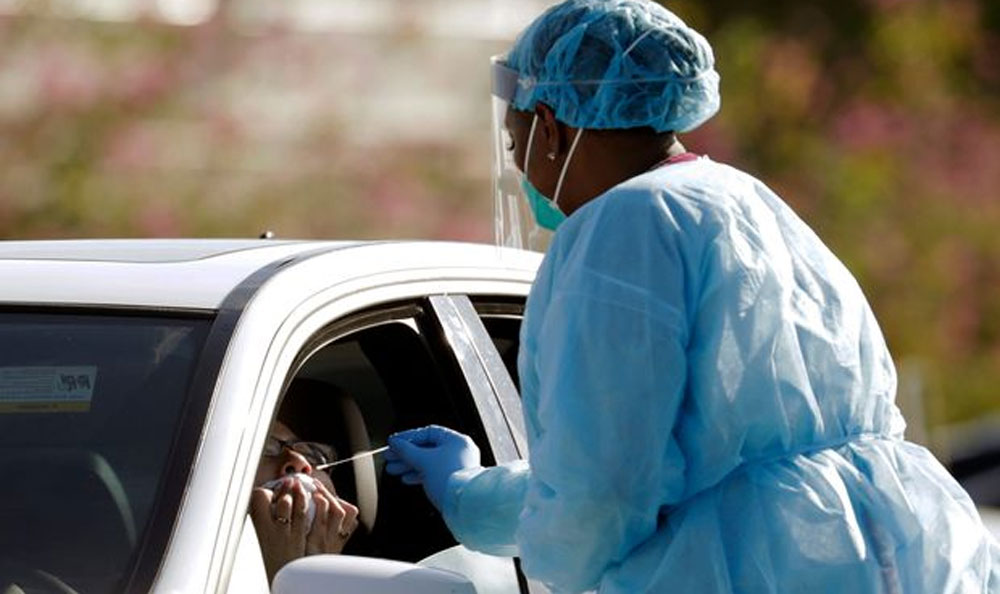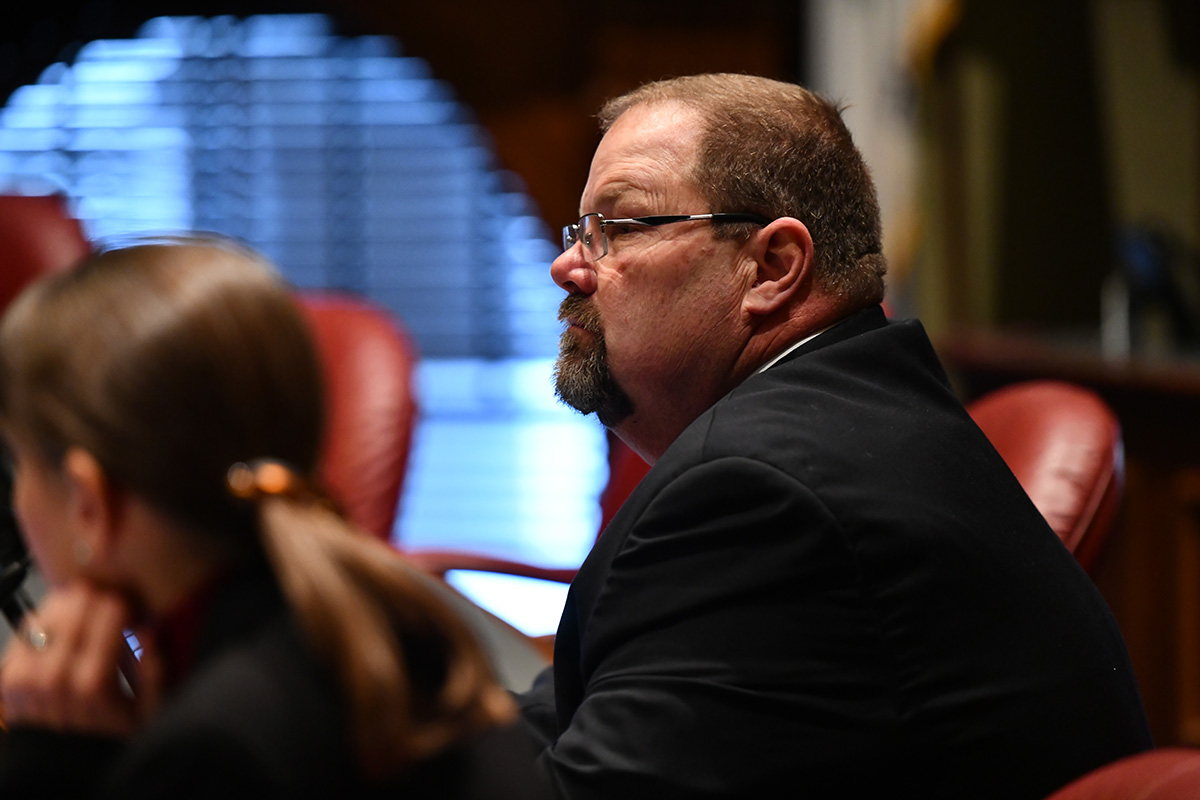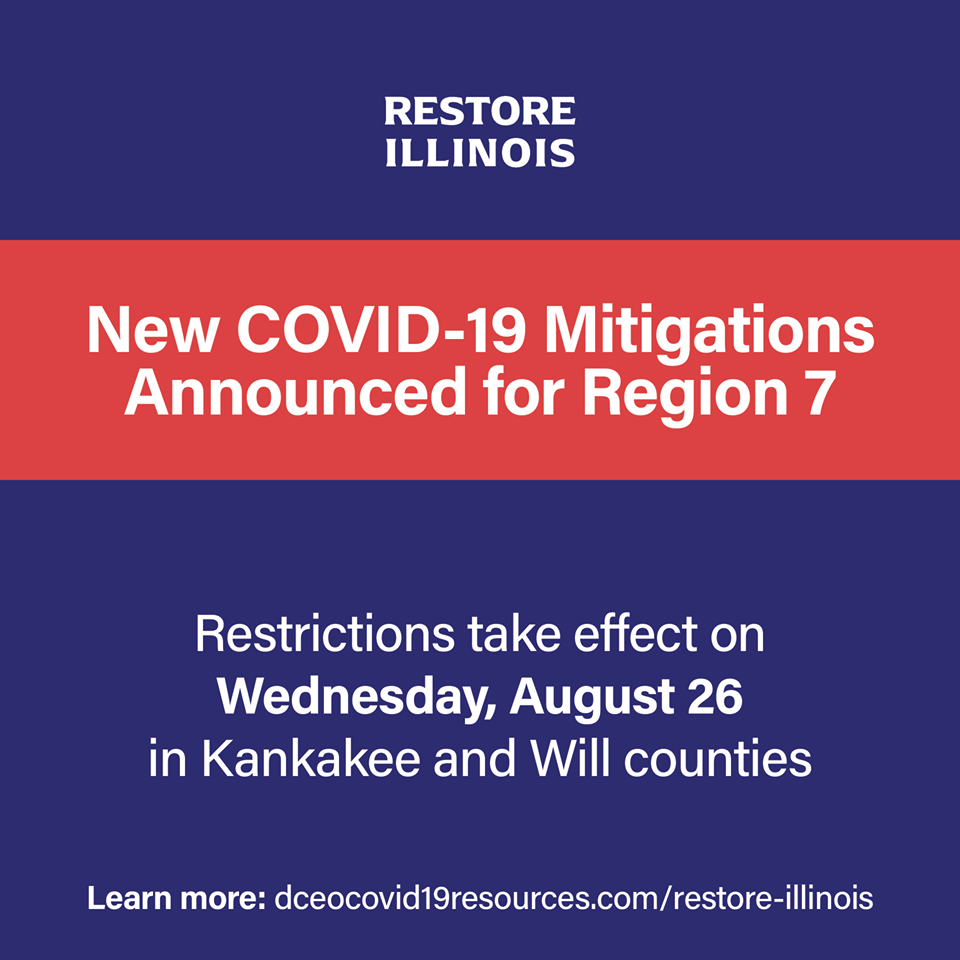Joyce highlights importance of getting tested during ongoing pandemic
- Details
- Category: Information

PARK FOREST – In an effort to slow the spread of COVID-19, State Senator Patrick Joyce (D-Essex) is reminding residents to take advantage of free testing.
“Getting a test is safe, quick and easy, and it helps keep you and your neighbors safe,” Joyce said. “If you have COVID-19-like symptoms, I encourage you to get tested as soon as possible.”
If a person believes they have been exposed to the virus, they should get tested 5-7 days after exposure – even if they don’t feel ill. Studies have shown people who are asymptomatic for the virus are still able to spread it to others, who may become visibly sick and require medical attention.
Individuals with symptoms that may be COVID-19 should also get tested, even if they don’t believe they need medical care.
Illinois has tested more than 3.8 million COVID-19 specimens since March and continues to expand testing throughout the state.
There are nearly 300 testing sites across the state, including 11 state-operated community-based testing sites and 12 mobile testing teams that conduct tests at facilities experiencing outbreaks – including nursing homes and correctional centers – and areas around the state reporting increased cases. All state-operated testing facilities are free.
More information about locations, testing hours and requirements can be found at www.dph.illinois.gov/testing.
Joyce enraged over Dresden nuclear plant shutdown
- Details
- Category: News

“Closing the plant during this economic hardship will have a long-lasting negative impact on the region,” Joyce said. “I am enraged that Exelon would choose to cut jobs and threaten our local economy at a time when hardworking men and women across the region are already struggling from this awful pandemic.”
Dresden Generating Station’s two nuclear reactors generate more than 1,800 megawatts of zero-emissions energy: enough carbon-free electricity to power more than 2 million homes. The plant was set to operate another decade.
Exelon also announced they would be closing the Byron Plant. Both plants combined supply 30 percent of Illinois’ carbon-free energy and help the state to meet its goal to achieve 100 percent clean energy.
Dresden provides hundreds of well-paying jobs and millions of dollars in local economic support, including about $24.8 million in taxes annually for schools, roads and other public services.
“I will continue to work with the bipartisan Senate’s Energy and Public Utilities Committee to institute policies that improve the lives of the people of the 40th State Senate District,” Joyce said.
Joyce: Illinois offers additional renewal options, extension for older drivers
- Details
- Category: Information
PARK FOREST – Approximately 147,000 older adults will avoid long lines and crowds at the DMV, thanks to a renewal extension of expired driver’s licenses for drivers 75 and older, State Senator Patrick Joyce (D-Essex) announced Wednesday.
“There’s no need for older adults to rush to a facility, thanks to the secretary of state’s driver’s license renewal extension,” Joyce said. “This allows vulnerable Illinoisans to keep their driving privileges and proof of identity without putting their health and safety at risk.”
In addition to being 75 years of age or older, the driver must have a valid license—drivers whose licenses have been suspended or revoked do not qualify for the one-year extension. Eligible drivers should soon receive a letter from the secretary of state as proof that they qualify.
For drivers under age 75, expiration dates for driver’s licenses, ID cards and license plate stickers have been extended until Nov. 1, 2020. Customers who choose to visit a facility must wear a face mask. In addition, customers are asked to be patient due to heavy volume and to be prepared to wait outside in various types of weather.
Joyce continues to encourage drivers to visit www.cyberdriveillinois.com to avoid waiting in line and take advantage of online services, including replacements and renewals of registrations, driver’s licenses and ID cards.
Joyce issues statement in response to new mitigation efforts
- Details
- Category: Press Releases

KANKAKEE – State Senator Patrick Joyce (D-Essex) released the following statement Tuesday in response to new COVID-19 mitigation measures in Region 7, which includes Will and Kankakee Counties:
“The new mitigation efforts imposed in our region will require us to take proactive steps to reduce the spread of COVID-19. If we want to get back to where we were at the beginning of Phase 4, I urge residents to take the appropriate steps to slow the spread of the virus through social distancing, wearing masks and adhering to other health and safety guidelines put in place by our public health officials.
“As we work through these new mitigation measures, let’s not forget about our small business community. Local businesses still need our patronage in the weeks ahead. Order takeout. Purchase gift cards. I urge you to join this effort and do your part to overcome this pandemic.”
More Articles …
Page 87 of 103




